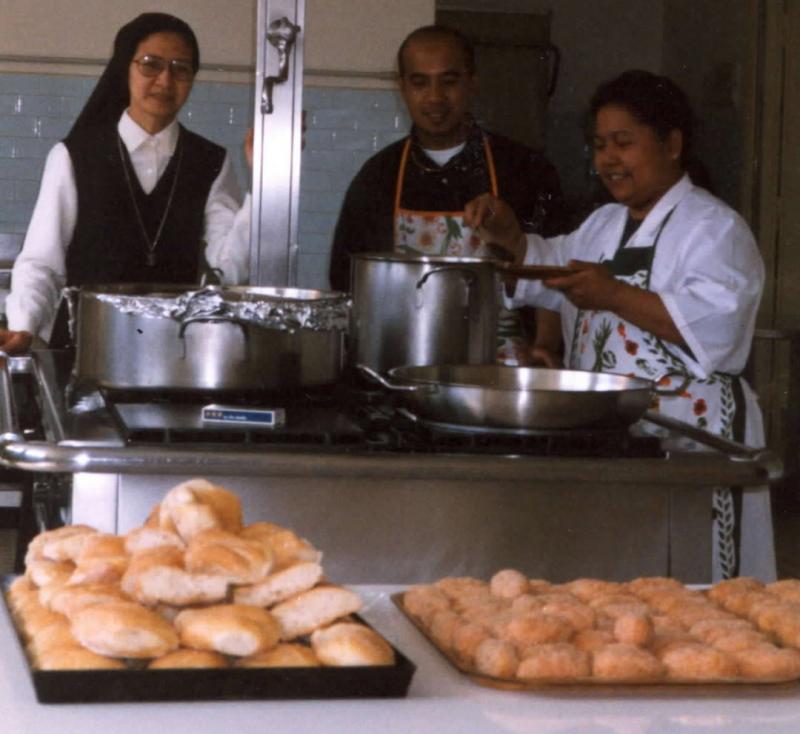If He Smiles Back... He’s Filipino
By Sr. Eva, Calingo cm
There was a time when we needed another pairs of hands in the kitchen in our General House. The suggestion in my community was “Why don’t we get a Filipino helper?” The next very day, I received a call from Annie. She became our cook.

Annie, our cook
In our General House, we are an international community of more than 40 Sisters. Annie comes very afternoon, six days a week, at times on Sunday as well. She has bee in Italy for many years, working indifferent households. She easily won the hearts of the Sisters with her sincere smile, openness, kindheartedness, patience and, surely the food she prepares. You only have to see her working and moving kitchen and you’ll say it’s her domain.
Silent language
Italian, English, Filipino, Korean, Polish, Hindi and many other languages are spoken in our community and Annie can only understand Italian and Filipino. But then, she still gets along well with the Sister. Language is not a barrier. As St. John of the Cross said “The language that God best hears is the silent language of love.”
Refreshed in the Kitchen
Since Annie arrived, I began taking my afternoon snacks in the kitchen. I work in a ‘jungle’ of computers, machines and papers in our General Secretariat. Going to the kitchen is a real refreshing break especially when the days are too full and I cannot even to the garden for a breath of fresh air. The kitchen working table is our silent spectator and listeners. There, I came to know Annie a little deeper, her life, work, struggles, dreams, family. He husband also works here in Rome and studies music in the afternoon. They are very active in the Filipino Community at Sacro Cuore and wouldn’t miss the Sunday afternoon Mass for anything.
If he smiles back, he’s Pinoy
In Rome, the Eternal City. The Filipino are a very organized migrant group. Priests and religious help them in their spiritual needs. Many are lucky in their jobs. A Filipino here can find plenty of “kababayans” at the bus stop, church, grocery, parks, trams, buses and in the streets when they go to or from work our during their day off. In a city with plenty of migrants like Rome, at times it is not easy to say if one is a “kababayans” or not what do we do when in doubt? We smile at the person, and if he or she smiles back, we immediately ask, “Pilipino? Kamusta po?”, which is usually followed by a friendly conversation, particularly if we’re in a bus or in the tram, until we reach our destination. This is a wonder to my Sisters of other nationalities. They told me first time but engage in a conversation as if we’ve known each other for ages!
Two serving hands and a heart
Having Annie with us and some brief encounters with other Filipino workers here, I marvel at their faith, their inner strength to face the ups and downs of lied in the foreign country. They give good examples of a life of strong faith in God, hard work and close family ties. I remember one Spanish Sister who was teary-eyed when she related to me about her Italian friend, an old woman who lives alone. A Filipino lady takes care of her friend and she admires her kindness and dedication. She said, “Yes, they do their job to earn living, but how they do it is something money cant buy.”
